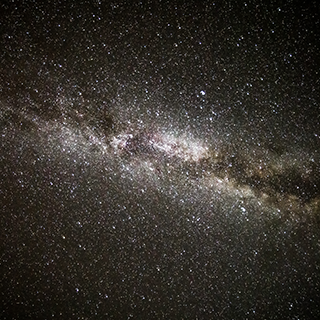
Teenagers Tracking Killer Asteroids At Tech Observatory.
June 30, 2015

SOCORRO, N.M. – The 57th Summer Science Program is now underway, kicking off Sunday with 36 of the world's top high school science students converging on New Mexico Tech from 18 states and three countries.
The 13th annual Summer Science Program (SSP) at New Mexico Tech continues for six weeks, with the young scientists spending their days in college-level lectures, and their nights imaging and measuring the speck of light from a near-earth asteroid.
Working in teams of three, students will take a series of telescopic images of their chosen asteroid, measuring its position precisely, then writing software to predict its future position from those measurements. They may even predict a collision with earth thousands or millions of years in the future.
Students find that this intense, hands-on immersion into experimental science gives them crucial inspiration and preparation to major in science or engineering in college. They work with university professors and meet prominent guest speakers, plus enjoy behind-the-scenes tours of Magdalena Ridge Observatory, the Very Large Array, and more.
"We're very pleased to return to Tech. Everyone here is extremely supportive, and the facilities are perfect for our program." said Richard Bowdon, program executive director.
Founded in 1959, SSP is operated by an independent non-profit, in cooperation with New Mexico Tech, Caltech, MIT, and University of Colorado Boulder. Complete information is at www.summerscience.org.
The summer program also includes five lectures that are open to Tech students, faculty, alumni and staff. Each will be held in Weir 202.
- Monday, June 29: Dr. Nicholas Suntzeff, "The Death of the Universe," 2:30 p.m.
- Saturday, July 4: Dr. Lawrence Sverdrup Jr., "Mad? Science!", 10 a.m.
- Wednesday, July 8: Dr. Susan Harbison, "Using Systems Genetics to Unravel the Mystery of Sleep," 2:30 p.m.
- Wednesday, July 15: Melinda Snodgrass, "And the Geeks Inherited Hollywood," 2:30 p.m.
- Wednesday, July 22: Dr. Jessica Rosenborg, "How Cosmic Collisions Impact the Evolution of Galaxies," 2:30 p.m.